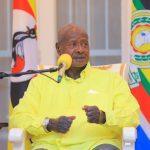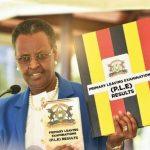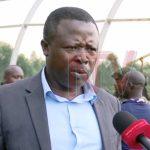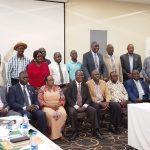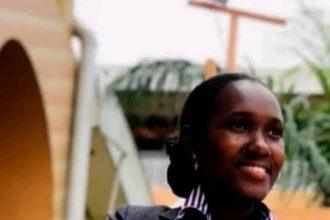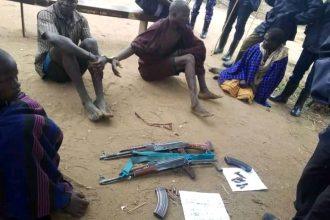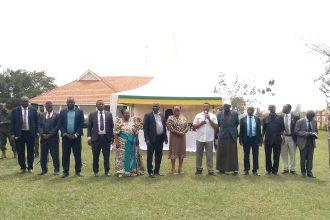A video has been circulating on social media — one that may seem lighthearted at first glance, yet it reveals a deeper issue about us as a nation and how we manage our politics and society.
The clip features a young Ugandan girl who was approached by a famous TikToker abroad. This creator, known for speaking multiple languages from Lingala to Swahili, French and others, asked about her mother tongue. The girl proudly said Runyankore, one of the dialects from western Uganda. When asked about her country’s staple food, she said Matoke. The man quickly realized she was Ugandan and replied in Luganda. The two exchanged greetings, and she politely explained that Luganda is one of Uganda’s languages, but she herself speaks Runyankore.
https://x.com/BigEyeUG/status/1988322515576647916?t=2XwCZh6kL8o34rfgrf82PQ&s=19
An innocent encounter — yet when the video reached Ugandan social media, it sparked tribal chaos. Many users, particularly those affiliated to the National Unity Platform (NUP) as per their social media activities over time, attacked the girl for not speaking Luganda. Some went as far as claiming Luganda is “Uganda’s language,” and that every Ugandan abroad should identify through it.
That wave of anger, especially from people identifying as Baganda, exposed something deeper — the growing tribal sentiments that have been creeping into Uganda’s political space, largely fuelled by political opportunism.
Uganda has over 50 ethnic groups, each with its own culture and language. These differences should be celebrated, not weaponized. There’s nothing wrong with being proud of one’s tribe, but forcing one’s language or culture onto others breeds resentment and division.
It is true — Luganda is widely spoken, especially because Buganda hosts the capital city and is central to trade, migration, and history. But that does not make it superior to other languages. During colonial times, Luganda was used as a tool of communication by colonial agents, alongside English and Kiswahili. That historical fact, however, should never be used as a reason to elevate one tribe or region above others.
The biggest danger to any country is not poverty or infrastructure gaps — it is ethnic division. Once people begin to see each other through tribal lenses, even the strongest nations crumble. And sadly, this is the path some of our politicians seem willing to drag Uganda into for their own political gain.
When the National Unity Platform rose to prominence under Robert Kyagulanyi Ssentamu (Bobi Wine), many Ugandans saw it as a fresh wave of change. But in recent years, tribal rhetoric has grown louder within the party’s circles.
Despite repeated calls from leaders and concerned citizens for Bobi Wine to publicly denounce the tribal remarks of some of his party members and supporters, he has remained hesitant — even silent. That silence has only emboldened those using his name to spread hate.
Worse still, some groups such as the Banyarwanda now live in fear. They are constantly being insulted and harassed online, called all sorts of names by extremists who claim to be defending the “true Uganda.” Shockingly, Bobi Wine himself has repeatedly referred to President Museveni as “a Munyarwanda who should go back to Rwanda.”
Such words from a national figure are reckless, divisive, and dangerous. They send a message that tribe determines belonging — a belief that once ignited some of the darkest chapters in African history.
When confronted about this, Bobi Wine’s defenders and himself often argue that “he cannot be tribalistic because he is married to a Munyankore woman.” But history proves otherwise. Dr. Milton Obote, who was married to a Muganda lady, still turned his guns on Buganda in 1966, attacking the Lubiri and causing years of division. Marriage does not erase tribal prejudice — one’s words and actions do.
If a leader constantly views national issues through a tribal lens, then no amount of mixed heritage can disguise that. Bobi Wine’s recent statements attacking security officers like Mukiibi based on tribe, instead of professionalism, only deepen those divides. An officer’s wrongdoing is not determined by his ethnicity, but by his conduct.
Uganda has come too far to be dragged backwards. The NRM government, with all its strengths and weaknesses, has kept this country united and cohesive for nearly four decades — ensuring that despite our different ethnicities, we live, work, and intermarry peacefully. When the NRM came to power in 1986, Uganda was a fractured nation — torn apart by tribal conflicts, coups, and revenge politics. Yet through deliberate effort, national identity slowly took root again.
Today, Ugandans travel freely from Gulu to Kabale, Mbale to Masaka, Arua to Mbarara — without fear of being judged by their tribe. A Muganda can live peacefully in Kitgum; a Musoga can do business in Bushenyi; an Acholi can marry a Mutooro without raising eyebrows. That is the Uganda we must protect.
This harmony is not accidental — it is the fruit of rejecting tribal division and choosing national unity. And it must be guarded fiercely, especially now that some leaders are using tribe to gain political mileage.
Uganda has already learned painful lessons from its past. When politicians play with tribal emotions, it is ordinary people who suffer. That is why, as we approach the 2026 general elections, Ugandans must reject leaders who preach division, however charming or youthful they may appear.
A true leader unites — he doesn’t point fingers at tribes or regions. He inspires people beyond ethnicity.
Our differences may be many, but our similarities make us beautiful. Uganda’s diversity is not a curse — it is a strength. And those who seek to divide us along tribal lines must never be trusted with power.
FOR GOD AND MY COUNTRY, UGANDA.





